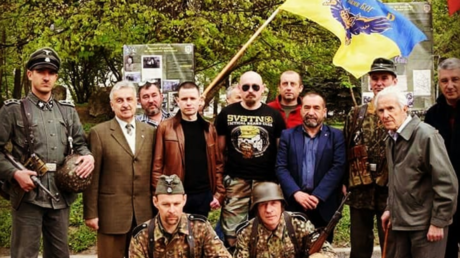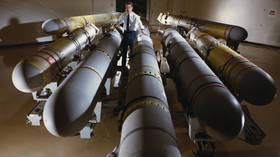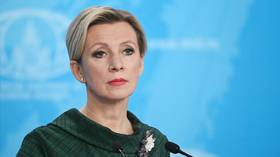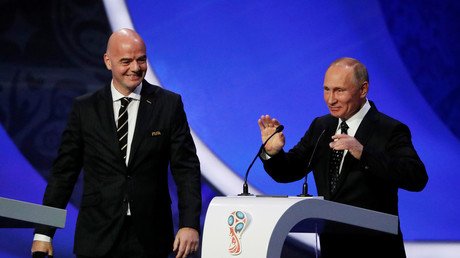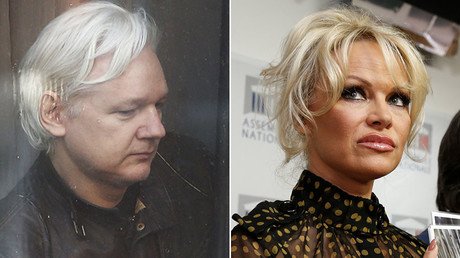Ukrainian nationalists plan Victory Day counter-march to honor SS veterans
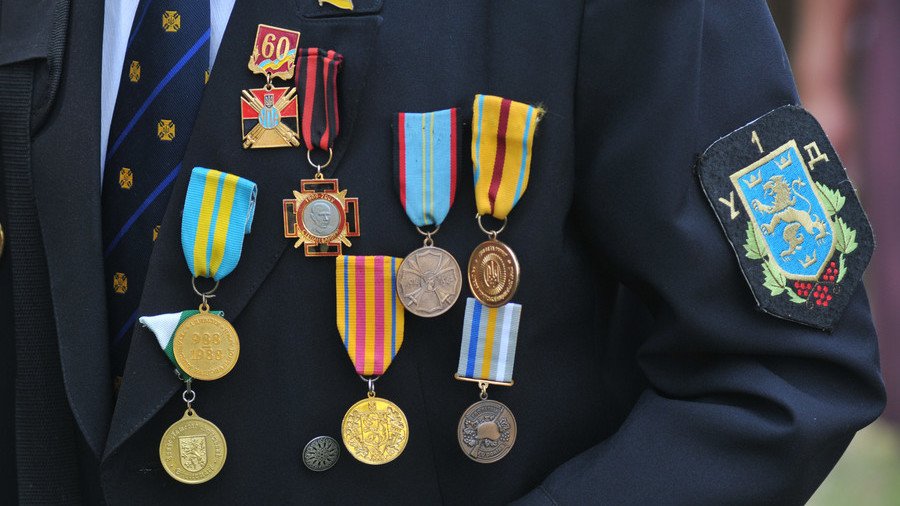
Ukrainian nationalists plan to walk on Victory Day with photos of their relatives, who fought for the Nazis as part the SS 1st Galician Division during World War II, to counter the Immortal Regiment Marches held in the country.
The Immortal Regiment tradition was launched in Russia a decade ago and has since then been picked up internationally, as millions of people across the globe march on May 9, carrying portraits of their relatives who fought the Nazis in World War II.
But the leader of Ukrainian nationalist organization Bratstvo (Brotherhood), Dmitry Korchinsky, has downgraded the Immortal Regiment to a mere “Russian propaganda stunt” in a post on Facebook. He announced that the radicals were preparing a counter-march on May 8 and 9, entitled the “Immortal Division.”
“With portraits of our grandfathers and great-grandfathers from the Galician Division, we must convince the vatniks [offensive term for Russians and supporters of Russian values, used by the Ukrainian nationalists] that their Immortal Regiment is not that immortal,” Korchinsky wrote.
The Nazis put together the SS 1st Galician Division in 1943, when the Soviet Union was gaining the upper hand in a war against the Third Reich. The unit comprised some 80,000 volunteers from the Ukrainian region of Galicia, who pledged allegiance to Adolf Hitler. The Galician Division participated in brutal anti-guerilla operations across Poland and Soviet Ukraine and have been blamed for massacres and other atrocities against the Jewish and Polish civilian population. It was crushed by the Red Army in July 1944 and swiftly rebranded as the Ukrainian National Army, before surrendering to the Western Allies after the fall of Berlin on May 9, 1945.
The Kiev police said they’ve received an application for the Immortal Regiment march to take place in the capital, adding that the organizers expect around 3,000 people to take part in the action. As for the claims by the nationalists, “we don’t have any applications from organizations opposing such a rally. But there is a whole week remaining and applications can still come up,” Andrey Krischenko, Kiev police head, told the 112 Ukraine broadcaster.
READ MORE: 'World must not stand by idly as Ukraine glorifies Nazism at govt level'
Ukrainian authorities have been criticized by Russia, Poland and other countries for turning a blind eye to the rise of radicals in the country and their attempts to glorify nationalists who collaborated with the Nazis during WWII. Numerous monuments to nationalist icons like Stepan Bandera and Roman Shukhevych have been erected in Ukrainian cities, with no plans for their removal. These last two were also given Hero of Ukraine awards in 2000, but the decision was reversed under international pressure.
Thousands of people in the country also take part in rallies and torch-lit marches, which are regularly organized by far-right groups to mark various dates linked to Bandera, Shukhevych and the Galician Division. The nationalists have also repeatedly been staging provocations on Victory Day, preventing people from taking part in celebrations, attacking veterans and blocking access to military cemeteries.
If you like this story, share it with a friend!
